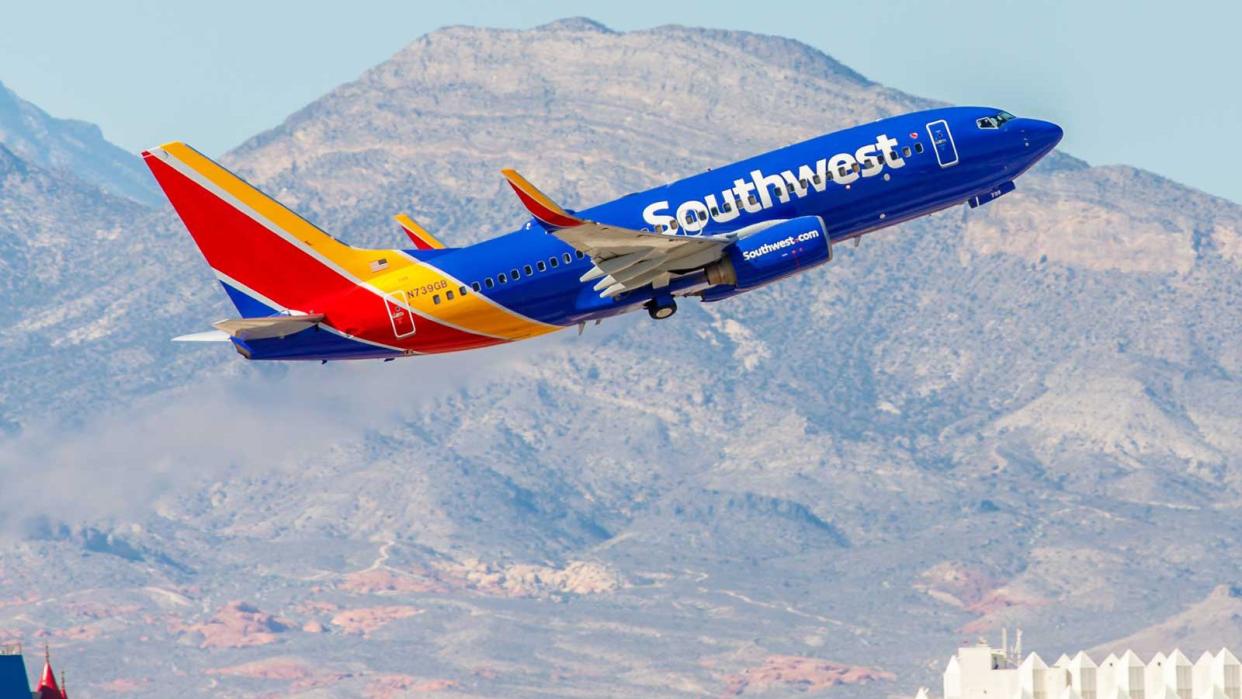Everything You Need to Know About Southwest Airlines Baggage Fees

Chris Parypa/Getty Images
We appreciate it when travel companies are upfront about costs. Unforeseen expenses can throw off your budget, causing a big downer when you're trying to enjoy your vacation.
Luckily, Southwest lets bags fly for free, as long as you follow their basic guidelines, which include the number of bags, the bag's weight, and the luggage size limit. Make sure you're also up on the airline's policy regarding check-in times when flying with checked bags, for both domestic and international travel. And, know where they stand on lost or damaged items.
Free Carry-Ons and Checked Baggage
As the only U.S. domestic carrier that allows two free checked bags per paying passenger, Southwest keeps things simple by avoiding nickel-and-diming customers.
Your Southwest ticket includes one carry-on bag, one personal item (a small backpack, laptop, or camera case), and two checked bags for free. That's right! Thanks to the airline's revered "Bags Fly Free" program, passengers don't have to deal with the nuisance of additional baggage fees, as costs have already been factored into the ticket. Of course, as with any airline, there are size and weight guidelines. But as long as you stick to the rules, you're golden.
Excess Baggage Fees
Compared to most other U.S. airlines, Southwest's baggage policy is streamlined. That means, you only have to pull out your credit card once you go beyond their bag limit. For example, a third checked bag will set you back $75 one way, as long as it falls within the weight and size limit. Additionally, all bags over 50 pounds, or over 62 inches in size (length, plus width, plus height) will also run you $75 one way.
If you're checking an additional piece of luggage and it blows the weight or size limit, well, that's going to cost you double. Per the airline's policy, a $75 excess baggage fee, combined with a $75 overweight fee, adds up to $150 one way.
To reduce costs, plan on keeping all luggage under 50 pounds, especially if you're checking more than two bags. Additionally, any item weighing more than 100 pounds and exceeding 80 inches in size must be shipped as Air Cargo.
The good news is — these fees (or lack of fees) apply to all passengers with no special exceptions. Since Southwest only flies Boeing 737 planes using an all-coach configuration, the fees don't vary based on where you sit.
Military Personnel Are Exempt
Southwest does offer extra perks if you're an active-duty military passenger with a valid ID. In this case, they waive the two-piece baggage limit, as well as the oversize or overweight baggage rules. Just make sure your luggage doesn't exceed 100 pounds or 80 inches.
Checked Bags and Check-In Times
Make sure to arrive at check-in early, should you plan on checking bags. Bags checked within 45 minutes of departure for domestic flights may not make it onto your plane. And if your bag doesn't arrive at your destination, you're out of luck, as Southwest will not pay delivery fees to get it to you.
For international travel, the rules are stricter. Passengers with checked baggage are expected to check in 60 minutes prior to departure (and 75 minutes ahead of time if you're traveling from the U.S. to Aruba). If you miss this timeframe, you will not be allowed to board at all.
Lost or Damaged Bags
But what happens if your bag is lost or damaged?
The airline assumes no liability for loss or damage due to normal wear and tear, which includes cuts, scratches, and scuffs. They also claim no responsibility for money, jewelry, electronic equipment, photographic or video equipment, irreplaceable items, perishables foods, and much more. So, be careful what you pack in your checked baggage.
Any loss or damage to protruding parts of your luggage, including wheels, feet, straps, and pockets, that is not due to normal wear and tear (as determined by a Southwest employee) is the responsibility of the airlines. And compensation for the loss, damage, or delay of any baggage is limited to the proven amount of damage or loss, and cannot exceed $3,800.

